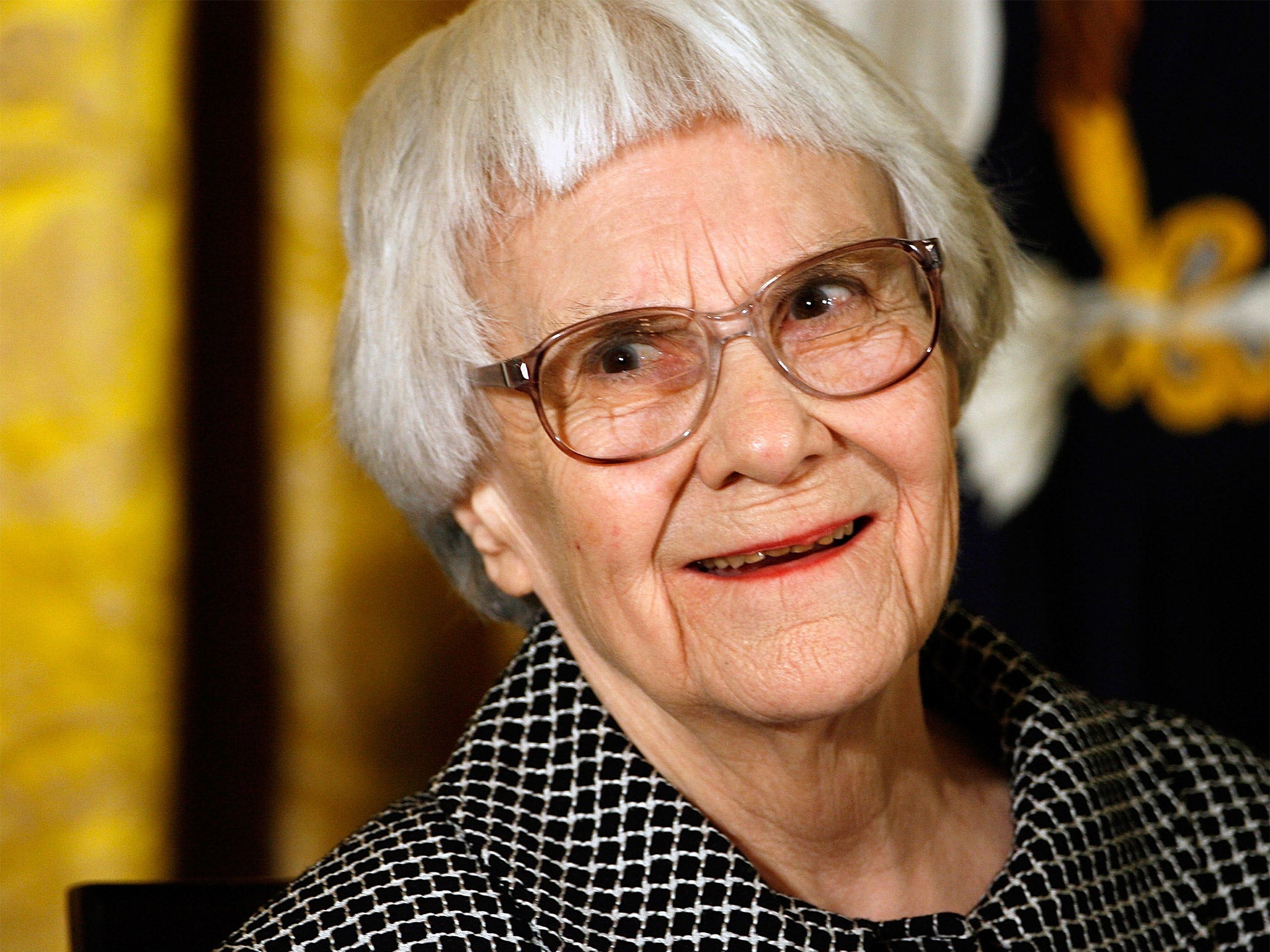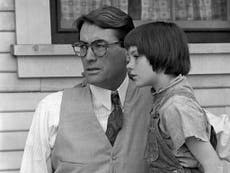To Kill a Mockingbird sequel: What if Harper Lee had a whole stash of them?
British booksellers are rubbing their hands with delight


The Harper Lee news story is full of superlatives. The “most unexpected sequel in the history of publishing” will be published this summer – Go Set a Watchman, the sequel to her classic novel, To Kill a Mockingbird. Mockingbird is, as everyone says, the Most Prized Novel of the 20th Century, if you discount Ulysses, The Great Gatsby, 1984, and a few others, and the shy author has been for years “the literary world’s most famous one-hit wonder”. British booksellers are rubbing their hands with delight at the prospect of a JK Rowling-style collective public Harperleegasm, and as readers storm the bookshops on 14 July, a chap at Foyles predicts, “We can close the book on the bestselling novel of 2015 right now.”
For those new to literary history, Mockingbird introduced the world to feisty child heroine Scout Finch and her lawyer father Atticus, as he fights for justice, defending a black man against the bigots of Maycomb, Alabama in the 1930s. Watchman was written before Mockingbird but rejected by her publishers and never launched. It features the same characters 20 years later, as the grown-up Scout leaves her adopted New York to visit her ageing papa in Alabama during the Civil Rights struggle.
The most extraordinary thing about the event, however, is that it’s happening at all. Harper Lee has always been the most reluctant celebrity writer, refusing to talk about Mockingbird in her (very rare) interviews, abandoning follow-up novels after 100 pages, shying away from all publicity. And since she’s 88 and now living in assisted accommodation, conspiracy theories have begun to fly about the announcement of Watchman.
Ms Lee had apparently assumed it was lost to the world. Miraculously, however, the manuscript was recently unearthed by her lawyer and “dear friend” Tonya Carter from what Ms Carter calls “a secure location” whatever that may be (a desk? A bank vault? A correctional facility?) It had been apparently “stapled to an original draft of the author’s debut novel”, which would have necessitated a gigantic staple, but they probably have such things in Alabama.
But then, tales of intrigue and false claims have swirled around Ms Lee’s innocent head as she’s got older. One of her neighbours, Marja Mills, used to drop in for coffee with Lee and her older sister, Alice, and turned her transcriptions of their chats into a memoir called The Mockingbird Next Door, which Ms Lee rejected as “unauthorised”. Then there were the court proceedings she issued against Samuel Pinkus, the son-in-law of her long-time literary agent Eugene Winick, who she claimed tried to dupe her into giving him copyright of Mockingbird when her sight and hearing were impaired after a stroke. An out-of-court settlement was subsequently reached between the parties. With so many apparent sharks circling her boat, it’s hardly surprising that she entrusted her financial interests to Alice.
Alice died last year, aged 103. Lee’s publishers say they didn’t speak to her directly about the book but have busily been reassuring everyone that Lee is in rude good health and the decision to publish Watchman was hers alone. Excellent news. Now we can dream of what other Mockingbird sequels there might be, such as:
Game, Set and Match, Man, set in the late-1960s hippie era, as Scout and her lawyer father Atticus confront the truth about racial discrimination on the US professional tennis circuit. Atticus stands up for the Grand Slam champion Arthur Ashe when he’s refused membership of a ritzy tennis club in Des Moines because of the colour of his skin. The book ends with an impassioned plea for clemency that’s later released as an album by the Grateful Dead.
Go Get a Walkman, set in 1980, as Scout and Atticus struggle to make sense of the new portable technology. Scout is run over by a municipal ride-on lawnmower as she tries to roller-skate through Central Park while listening to her audio-cassette of bluegrass music. Her father sues the city fathers for discrimination against plain country folk, but the case is thrown out and later becomes the premise for a cruelly satirical NBC sitcom.
Don’t Fret the Mockingjay, set in 2005. Critics accuse Lee of jumping on the Hunger Games bandwagon with this dystopian novel, set in a rural backwater where the only road out of poverty is for young women to compete before cheering crowds in shooting exotic birds with AK-47 assault rifles. Wearing a T-shirt with the words “Don’t F*** With The Finch,” Atticus takes the organisers to court for bird cruelty, but loses. In the movie, he is played, controversially, by Morgan Freeman.
The Grim Reaper's ball
Speaking about age, I noticed death and decrepitude were very much to the fore at the Oldie of the Year Awards this week. The Oldie magazine itself doesn’t dwell much on the approach of the Grim Reaper, but at the awards ceremony the topic is on everyone’s lips.
Milling around at pre-lunch champagne reception, guests clutched each other’s elbows and hissed several variants of “Isn’t that Alan Watkins? I thought he’d died years ago. No, hang on - it’s Bob Marshall-Andrews.” The MC Gyles Brandreth made ghoulish references to you-know-what (“I had to speak to the Undertakers Guild of Great Britain the other day. I like them. Very good at thinking outside the box”) and, while introducing the Stupid Boy of the Year, Ian Lavender, aka Private Pike from Dad’s Army (whose cast is almost entirely deceased,) said, “We thought we’d better catch him while he’s still alive.”
Bridget Riley – Stripe Artist of the Year — recited the “To be or not to be” soliloquy from Hamlet but forgot it halfway through and had to be rescued by the audience, in chorus. Michael Buerk, of serious TV documentary and Moral Maze fame, revealed that, during his time in I’m a Celebrity – Get Me Out of Here!, “the hardest thing wasn’t rats, or cockroaches, or even Edwina Currie; it was working out who the other celebrities were.”
It was, in short, a very British occasion, full of gallows humour, stiff-upper-lip stoicism in the face of dwindling powers and terrific yelps of recognition at the barbs from the high table. One of the best was from Ken Dodd, Oldie of the Year, and admirably unstoppable at 87: “You know you’re getting old when you bend down to fasten your shoelaces and you wonder to yourself: ‘Now is there anything else I can do while I’m down here?’”


Join our commenting forum
Join thought-provoking conversations, follow other Independent readers and see their replies